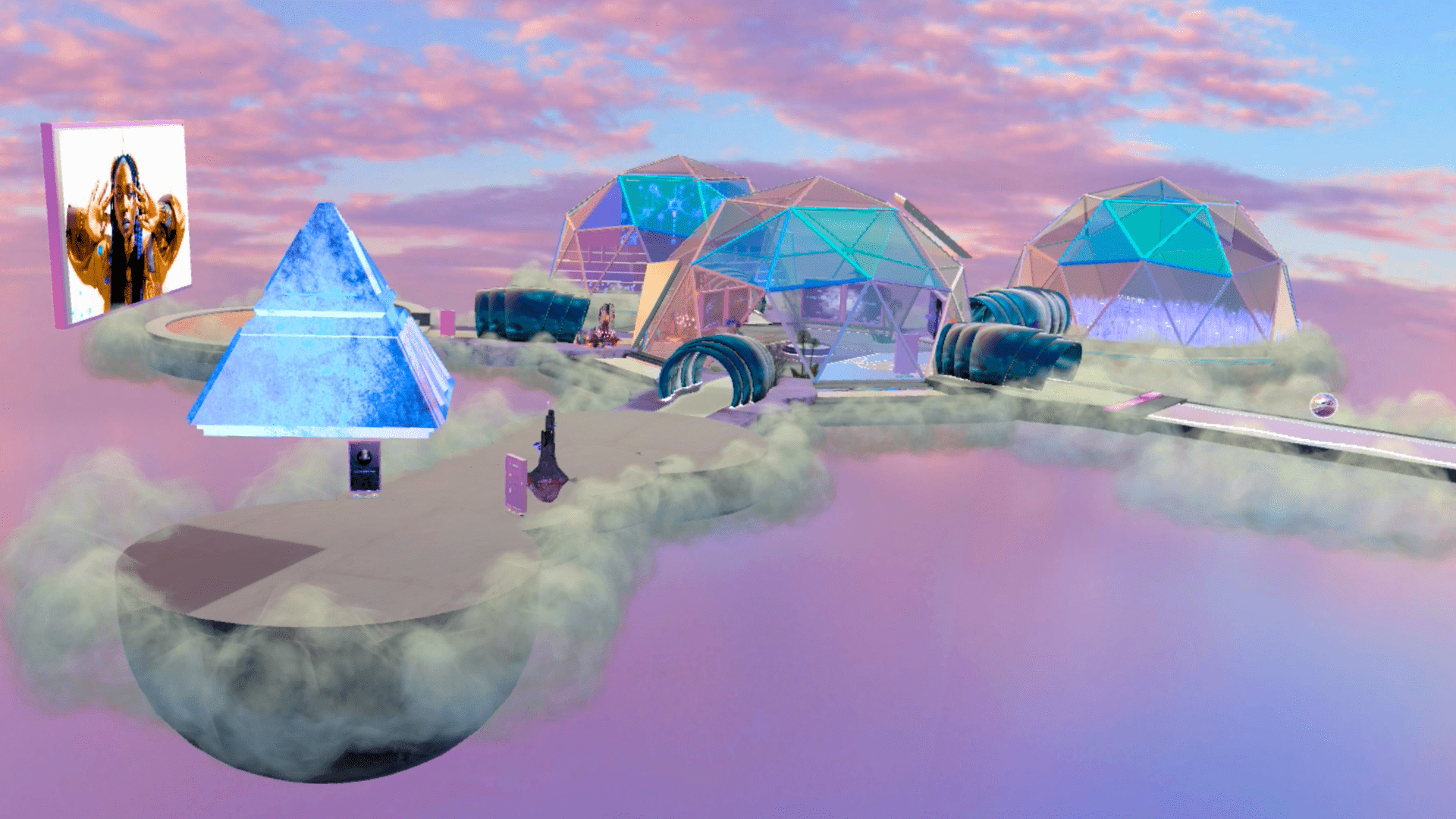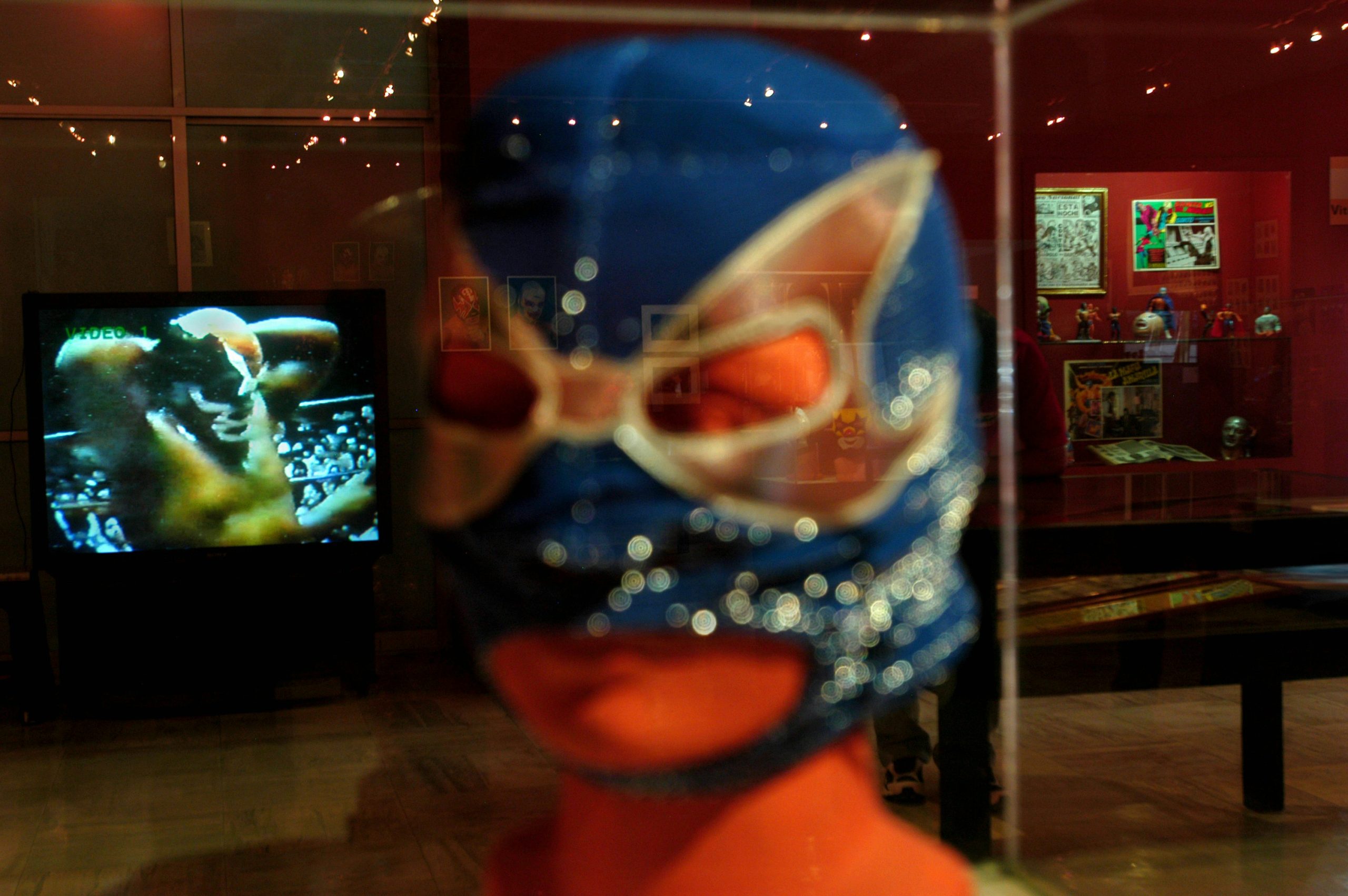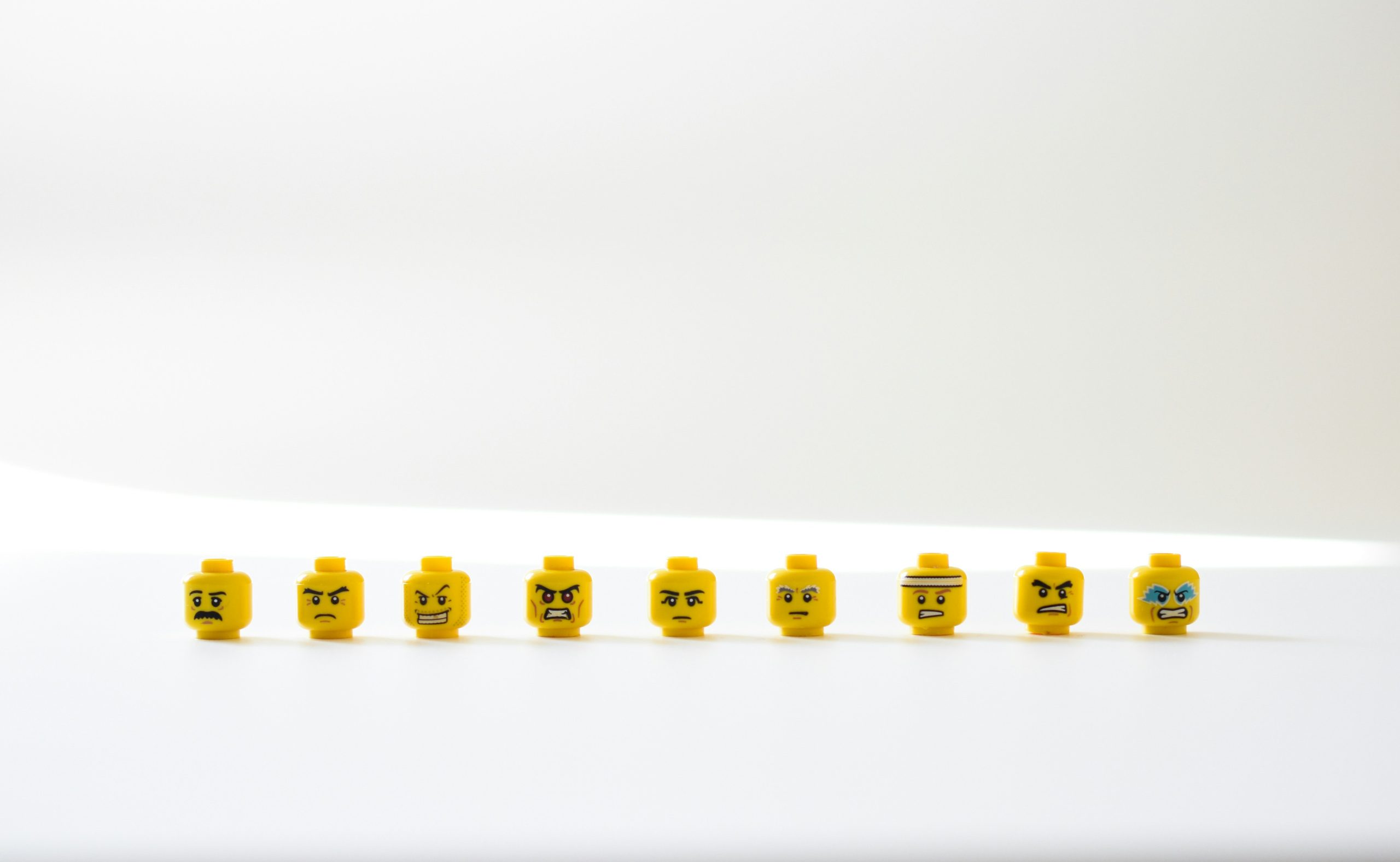How are immersive digital worlds making the real world a better place?
Anatola Araba is an artist, futurist, and filmmaker. Her most recent award-winning film, Afro Algorithms, is a 3D animated short in that explores the topics of artificial intelligence and bias.
The project screened across the globe and was sent to the Moon by Space Blue as a part of NASA’s Commercial Lunar Payload Services (CLPS) initiative, making her the first Black female director to have a short film on the Moon.
With the mantra that “imagination is the greatest tool of humanity,” her passion is to use the power of creativity to build a more sustainable, equitable, and innovative future. Here, she explores how new metaverse experiences might help experience designers do just that.
In this age of rapid digitization, 3D virtual environments are not only providing platforms for creative expression, global community-building, and imaginative architectural exploration, they are also pioneering sustainability across various industries such as art, fashion, and beauty.
The term “metaverse” was first dreamed up in the 1992 science fiction novel, Snow Crash, referring to a digital world where it’s always nighttime and users can access the virtual world through public terminals and high-powered VR headsets. More than 30 years later, the term “metaverse” is often mentally linked with Facebook’s rebrand to Meta, despite the two being intrinsically separate.
The new metaverse experiences, however, are a string of immersive social environments that are championing accessibility and sustainability and can be accessed across a variety of platforms. Because of this, I choose to refer to these innovative landscapes simply as “digital worlds”. Digital worlds contain infinite possibilities for experience designers to immerse audiences in new and imaginative virtual realms.
“We have to make thoughtful decisions about how we shape our technology future.”
Toni Parisi, Metaverse Whisperer
I interviewed metaverse experience innovators across the globe from London to Los Angeles to discover how immersive digital worlds are reimagining connection, creativity, and sustainability for the next generation.
Co-Creating Sustainable Solutions With Your Digital Audience
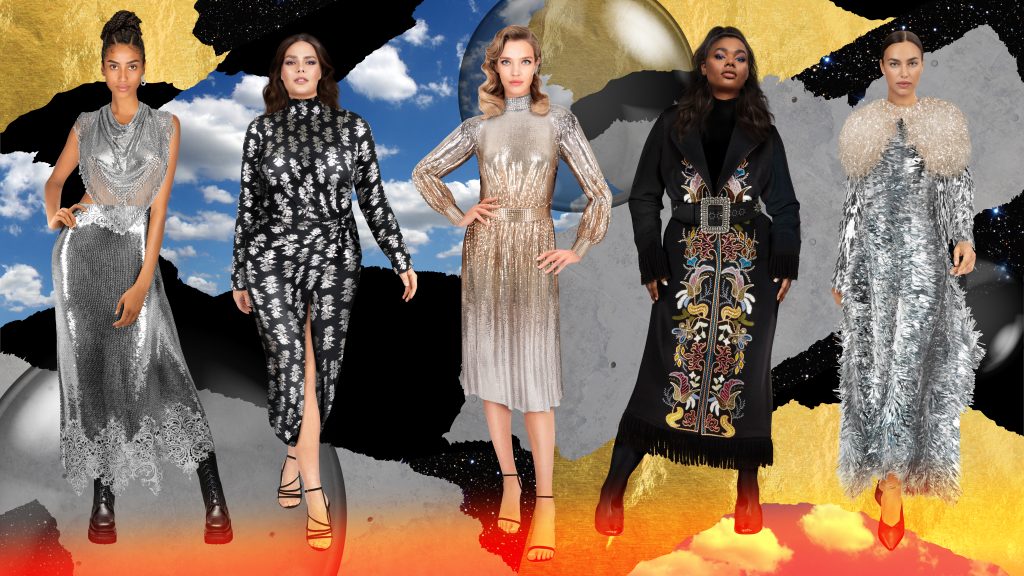
One pioneer I spoke with is Lucy Yeomans, the former Harper’s Bazaar Editor-in-Chief turned digital fashion pioneer. From her luxury office building overlooking London’s Soho neighborhood, Yeomans reveals how her revolutionary digital fashion app, DREST, is shepherding a more sustainable future of fashion.
“There’s a lot of issues to tackle when it comes to sustainability and fashion. The amount of clothes that are bought per person has grown tenfold in the last decade.” However, Yeomans believes that “as the virtual world becomes more important, that is where digital fashion will really come into its own and reduce consumption.”
“No longer are we content to be spoken to. Now, we want to be a part of the world.”
Lucy Yeomans
As storytelling evolves, younger audiences prefer to co-create a story rather than merely have it told to them. In her digital fashion app, DREST, Yeomans fully acknowledges this evolution. “As technology develops, no longer are we content to be spoken to. Now we want to be a part of the process. We want to be a part of the world. We want to get creative.”
Gamifying Digital Worlds To Connect With New Audiences
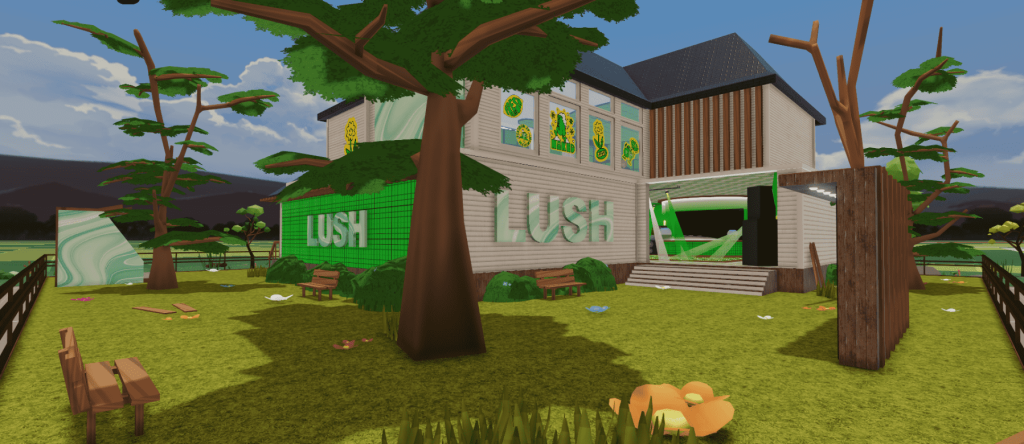
One way to give audiences agency in metaverse experiences is through gamification. Digital worlds keep audiences engaged for longer by giving visitors specific missions and objectives to achieve during their visit.
This interactivity is one reason why games have become so lucrative, attracting the majority of immersive tech funding in the city of London at 56%, London and Partners reports.
Beauty brands such as LUSH, a British cosmetics retailer, are gamifying their digital worlds to connect with global audiences in new ways. I spoke with the Head of Technology Research and Development at LUSH, Adam Goswell, to hear how the clean cosmetic company incorporates gamification into their 3D virtual experiences.
In Decentraland, a 3D virtual reality platform powered by the Ethereal blockchain, exists a slice of digital real estate known as “the LUSH house”. Here, LUSH invites visitors to gather virtual bath bombs, one of their signature physical products, allowing them to collect points.
Goswell points out that metaverse experiences are the best way to build community virtually as they are more immersive than current options like Zoom while being more sustainable than in-person gatherings given they don’t require travel or building materials.
While digital worlds have their own environmental footprint, from cloud storage to data center emissions, Goswell remains optimistic about the potential of these virtual environments.
The Open Metaverse As The Future Of Sustainable Digital Worlds
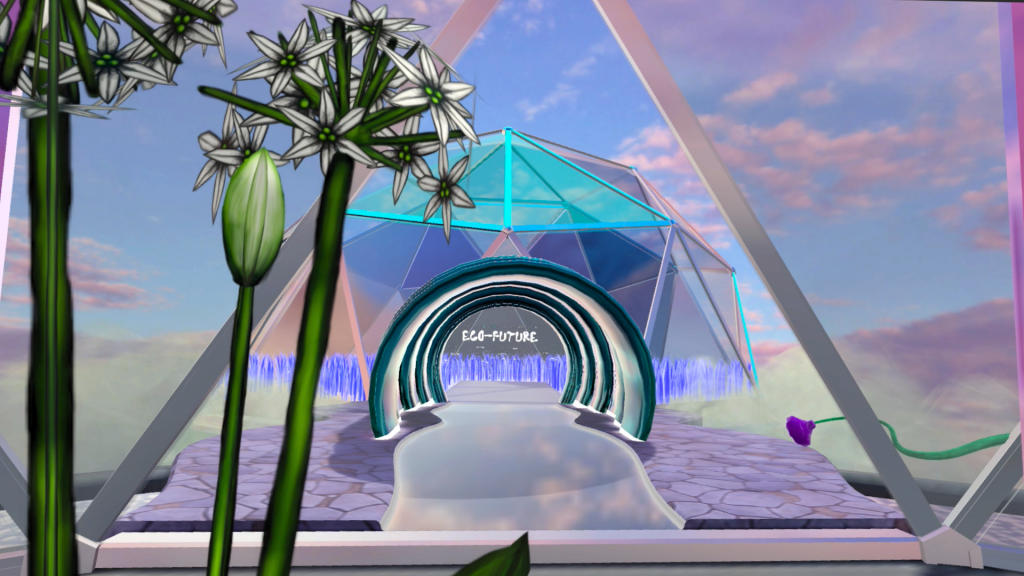
So industries from fashion to beauty are embracing digital worlds to craft custom immersive experiences. How will this shape the future of this technology?
I asked Toni Parisi, self-proclaimed Metaverse Whisperer and Software Developer, what he thinks the future of digital worlds will look like. Parisi stated that developing an “open metaverse” is the only path forward.
“We have to make thoughtful decisions about how we shape our technology future,” Parisi says. An open metaverse is one where artists, brands, and creators are not locked into one system but can communicate freely amongst various platforms. “It’s like the open sourced 2D internet, only 3D focused.”
For me, as a filmmaker and futurist, I found building immersive metaverse experiences allowed me to bring my imagination to life in brand new ways. To take this a step further, I created a virtual museum at the intersection of art, technology, and impact called R3imagine Immersive. The space exists to imagine and catalyze a sustainable future.
In the process, I found that these innovative spaces are truly a new frontier waiting to be fully discovered. Much much like the vast unknowns at the bottom of the ocean or the mysteries looming in outer space, the full capabilities of immersive digital worlds have yet to be realized.
Still, having spoken to so many innovators using digital worlds to drive positive change, I believe in the potential of digital worlds to make the real one a better place.
Enjoyed this? You might find these articles interesting:
- Inclusive Innovation & How To Build A People’s Metaverse
- Metaverse, Schmetaverse! Embrace The Multiverse…
- How To Use NFTs To Fuel Immersive Experiences
- Meet The Petaverse
- Impactainment: How Experiences Might Save The World
- How To Use Transmedia Storytelling For Real-World Impact
To get more insights from experts in the Experience Economy, attend digital and IRL events, and access our exclusive online community, apply to join the WXO now.

